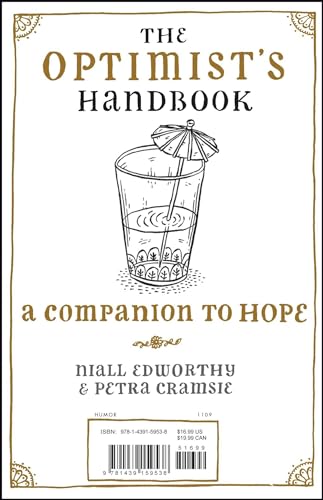Matt Ridley’s work “The Rational Optimist” revolutionizes our understanding of human progress and the fundamental role of trade and specialization in the development of civilization. The book presents an innovative perspective on how humanity has advanced throughout the centuries, challenging pessimistic views and offering an optimistic, yet well-founded outlook on our collective future.
The Unprecedented Present and the Transformation of Quality of Life
At the beginning of his work, Ridley establishes a provocative perspective on our current era, introducing the concept of an “unprecedented present.” To illustrate this point, he offers a historical comparison about illumination that would become emblematic: “In 1750 BC, it would take more than 50 hours of work for one hour of reading light. In 1800, 6 hours of work for 10 minutes of light. Today, one hour of work guarantees 300 days of reading light.” This tangible comparison demonstrates how technological progress has fundamentally transformed our quality of life, offering comfort and opportunities unimaginable to previous generations.
The Collective Brain: The True Source of Human Innovation
The central concept that permeates the entire work is that of the “collective brain.” Contrary to the traditional view that emphasizes individual genius, Ridley argues that the extraordinary capacity for change in our species is not contained within individual brains, but rather “between brains.” This idea is exemplified in the comparison between the manufacture of a primitive axe, which could be made by a single person, and a modern computer mouse, which requires the accumulated knowledge of thousands of specialists. As Ridley emphasizes, “it was not something that happened inside a brain, but between brains.”
Escaping the Malthusian Trap
The work directly challenges the traditional Malthusian view of population growth and resources. Thomas Malthus predicted that population growth would inevitably outpace food production, leading to crises of hunger and misery. However, Ridley demonstrates how humanity has managed to escape this trap through trade and specialization. The “industrious revolution,” a period preceding the Industrial Revolution when people began to work more intensively to obtain more goods, represented a crucial mindset change for subsequent economic development. This phenomenon illustrates how behavioral changes can precede and drive broader technological transformations.
Inequality, IQ, and the Easterlin Paradox
The book presents a nuanced analysis of contemporary inequality. According to Ridley, although inequality still exists, it has decreased in several important aspects. A fascinating example is that IQ scores have been consistently rising at a rate of 3% per decade, with less intelligent people getting closer to the more intelligent ones, suggesting a leveling effect from access to education. Ridley also questions the so-called “Easterlin paradox,” which suggests that, beyond a certain point, more money does not bring more happiness. Citing 2008 studies, he argues that rich people tend to be happier than poor people, and rich countries have more happy people than poor countries, offering a more optimistic view of the benefits of economic development.
Science and Technology: An Inverted Relationship
In his analysis of innovation, Ridley presents a revolutionary perspective on the relationship between science and technology. Contrary to the traditional view, he argues that technology generally precedes science, not the other way around. Science, in many cases, emerges as an attempt to understand the principles behind an existing invention. This inversion of the traditionally assumed relationship between science and technology is exemplified at various historical moments, challenging our conventional understanding of the innovation process.
The Transformative Role of Energy in Human Development
The book devotes considerable attention to the role of energy in the evolution of societies. As Ridley states, “civilization is about capturing energy.” The discovery of coal as an energy source radically transformed society during the Industrial Revolution, allowing ordinary people to access levels of comfort previously reserved for royalty. The discussion of “Jevons’ paradox” offers a fascinating perspective on efficiency and consumption, suggesting that improvements in the efficiency of resource use can, paradoxically, increase total consumption. This observation has profound implications for contemporary debates on sustainability.
Knowledge: The Resource That Defies Diminishing Returns
A particularly innovative aspect of Ridley’s analysis is his discussion of knowledge as a unique resource. Unlike physical resources, which are subject to diminishing returns, knowledge multiplies when shared. Ridley uses the metaphor of a bowl of nuts to contrast: while nuts decrease as they are consumed, knowledge grows the more it is used and shared. This phenomenon of “increasing returns” of knowledge explains how societies can continue to progress even with limited natural resources, offering an optimistic perspective on the potential for human development.
Spillover, Patents, and the “Sexual Reproduction” of Ideas
The dynamics of “spillover” in technological development reveals how innovation often transcends its planned origins. The story of unbreakable glass in ancient Rome dramatically exemplifies how suppressing the free exchange of ideas can strangle progress: when an artisan presented his revolutionary invention to the emperor, he was executed by imperial order, fearful that the new technology would devalue the goods of his allies. Ridley presents a nuanced view of intellectual property, arguing that, although patents can stimulate creativity in certain contexts, they can also create artificial barriers to the natural flow of ideas. The metaphor of the “sexual reproduction” of technologies suggests that innovations, like genes, thrive through recombination and adaptation.
Challenging Pessimism: Unfulfilled Predictions
The analysis of pessimistic predictions about the future of humanity reveals an intriguing pattern. Historically, prophecies of disaster have received more attention and recognition than optimistic perspectives, despite frequently not materializing. Fears about a cancer epidemic caused by chemicals, widespread global famine, and devastation by acid rain exemplify how catastrophism can distort our perception of real progress. This tendency towards pessimism has a significant cost: by believing that the future will inevitably be bleak, societies may fail to invest in innovative solutions to existing problems.
Africa, Development, and the Power of Organic Institutions
The examination of African development, particularly the case of Botswana, offers valuable lessons on the importance of organic institutions. The success of this African country demonstrates how social structures that naturally emerge from the population base can overcome top-down arrangements. This contrast with the situation in other countries, where excessive bureaucracy stifles development, illustrates the importance of institutions appropriate to the local context. This analysis has significant implications for development strategies in different cultural contexts.
Climate Change: A Balanced Perspective
Ridley addresses contemporary environmental issues, including climate change, with a perspective that seeks to balance legitimate concerns with rational optimism. While recognizing the reality of the phenomenon, he questions what he considers a “climate narcissism” that sees only the recent climate as ideal. This balanced analysis suggests that adaptation and innovation can offer more productive paths than paralyzing catastrophism, without minimizing the importance of the real environmental challenges we face.
Internet, Democratization of Knowledge, and “Prosumers”
The digital revolution has radically transformed the processes of creation and dissemination of knowledge, allowing consumers to become active creators. The phenomenon of “prosumers” – individuals who are simultaneously producers and consumers of content – exemplifies this radical transformation in the dynamics of knowledge. This unprecedented democratization of innovation, where ordinary users often discover applications and improvements that escaped the original developers, represents an acceleration of the “collective brain” mechanism that has always driven human progress.
The Neurobiology of Trust and Commerce
The discovery of the relationship between the hormone oxytocin and cooperative behaviors suggests a biological basis for our ability to trust strangers – a crucial skill for the development of commerce and specialization. This neurobiological perspective offers valuable insights into how we evolved from small family groups to complex societies based on exchanges between strangers. Ridley highlights how commerce not only distributes material goods but also builds bonds of trust between different communities, promoting peace and cooperation on increasingly larger scales.
Conclusion: A Call to Rational Optimism
“The Rational Optimist” not only documents past progress but also offers a roadmap for the future. By understanding the fundamental mechanisms that drive human development – exchange, specialization, and collective innovation – we can work more effectively to create a more prosperous and sustainable world. True rational optimism is not about ignoring problems, but recognizing our collective capacity to solve them. The history of human progress, with its twists and surprises, teaches us that the future remains open to the possibilities that our collective creativity can generate. This perspective offers not just hope, but a call to conscious and collaborative action. Ridley’s most important legacy may be demonstrating that, as long as we maintain our ability to freely exchange and combine ideas, our potential for progress remains virtually unlimited.










